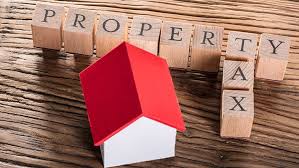
Breaking News
 Naomi Wolf: "Von der Leyen Lied About Pfizer Safety" EU Parliament (Publisher Recommended)
Naomi Wolf: "Von der Leyen Lied About Pfizer Safety" EU Parliament (Publisher Recommended)
 A Billion Voices of Truth: Mike Adams Announces "Moonshot" Mission to Empower Humanity...
A Billion Voices of Truth: Mike Adams Announces "Moonshot" Mission to Empower Humanity...
 This Is The Most Evil Reaction To Charlie Kirk's Assassination That I Have Seen
This Is The Most Evil Reaction To Charlie Kirk's Assassination That I Have Seen
 Two Strikes in Two Weeks: U.S. Escalates Toward Regime Change in Venezuela Under Drug War Cover
Two Strikes in Two Weeks: U.S. Escalates Toward Regime Change in Venezuela Under Drug War Cover
Top Tech News
 ORNL tackles control challenges of nuclear rocket engines
ORNL tackles control challenges of nuclear rocket engines
 Tesla Megapack Keynote LIVE - TESLA is Making Transformers !!
Tesla Megapack Keynote LIVE - TESLA is Making Transformers !!
 Methylene chloride (CH2Cl?) and acetone (C?H?O) create a powerful paint remover...
Methylene chloride (CH2Cl?) and acetone (C?H?O) create a powerful paint remover...
 Engineer Builds His Own X-Ray After Hospital Charges Him $69K
Engineer Builds His Own X-Ray After Hospital Charges Him $69K
 Researchers create 2D nanomaterials with up to nine metals for extreme conditions
Researchers create 2D nanomaterials with up to nine metals for extreme conditions
 The Evolution of Electric Motors: From Bulky to Lightweight, Efficient Powerhouses
The Evolution of Electric Motors: From Bulky to Lightweight, Efficient Powerhouses
 3D-Printing 'Glue Gun' Can Repair Bone Fractures During Surgery Filling-in the Gaps Around..
3D-Printing 'Glue Gun' Can Repair Bone Fractures During Surgery Filling-in the Gaps Around..
 Kevlar-like EV battery material dissolves after use to recycle itself
Kevlar-like EV battery material dissolves after use to recycle itself
 Laser connects plane and satellite in breakthrough air-to-space link
Laser connects plane and satellite in breakthrough air-to-space link
 Lucid Motors' World-Leading Electric Powertrain Breakdown with Emad Dlala and Eric Bach
Lucid Motors' World-Leading Electric Powertrain Breakdown with Emad Dlala and Eric Bach
The groundswell against property taxes: A fight over ownership and equity

Spearheaded by officials like Florida Governor Ron DeSantis and gaining traction in states like Texas, this movement argues that the annual levy on real estate is not only oppressive but fundamentally unconstitutional, preventing Americans from ever truly owning their homes and leading to what critics call systemic "equity stripping." This push for abolition or radical reform threatens to upend municipal finance and redefine the relationship between citizens and the state.
The core of the argument, as voiced by numerous property rights advocates, is that the threat of government seizure for non-payment negates the concept of ownership. "It's hard to say that you are ever really the owner of your home if you are having to pay rent to the government every year," one commentator noted. This sentiment is amplified in a climate of soaring property valuations, where homeowners see their tax bills rise despite making no improvements, simply for "living there and enjoying life." For retirees and those on fixed incomes, these increasing demands can force the sale of family farms or homes after a lifetime of investment, a phenomenon activists have termed "equity stripping."
A system with a troubled historical legacy
The contemporary fight finds resonance in a deep and troubling historical context. Scholars like Andrew Kahrl, author of "The Black Tax: 150 Years of Theft, Exploitation, and Dispossession in America," have extensively documented how local property taxes have been weaponized to perpetuate inequality. His research reveals a pattern of overassessment in minority communities coupled with the predatory enforcement of tax delinquency laws, which often transferred property to private investors for minuscule unpaid debts.
This history underscores a critical vulnerability in the system: its hyper-local administration. With significant discretionary power vested in local officials and few federal oversight mechanisms, the property tax has been susceptible to manipulation, favoritism and systemic bias. The result, as Kahrl's work illustrates, was the dispossession of generations of Black Americans from hard-earned property and a persistent barrier to wealth accumulation, exploding the "pernicious myth" that they were not contributing taxpayers.
Proposed solutions and legal battles
The proposed solution from many within the abolition movement is to replace property tax revenue with an alternative source, most commonly a state sales tax. Proponents, often aligning with libertarian ideals, argue this shifts the tax burden to consumption, giving individuals more control over their financial exposure. One detailed analysis of Texas's finances suggested a uniform state sales tax rate of 15.64% at retail could fill the gap, though the rate would vary by state based on population and spending patterns.



